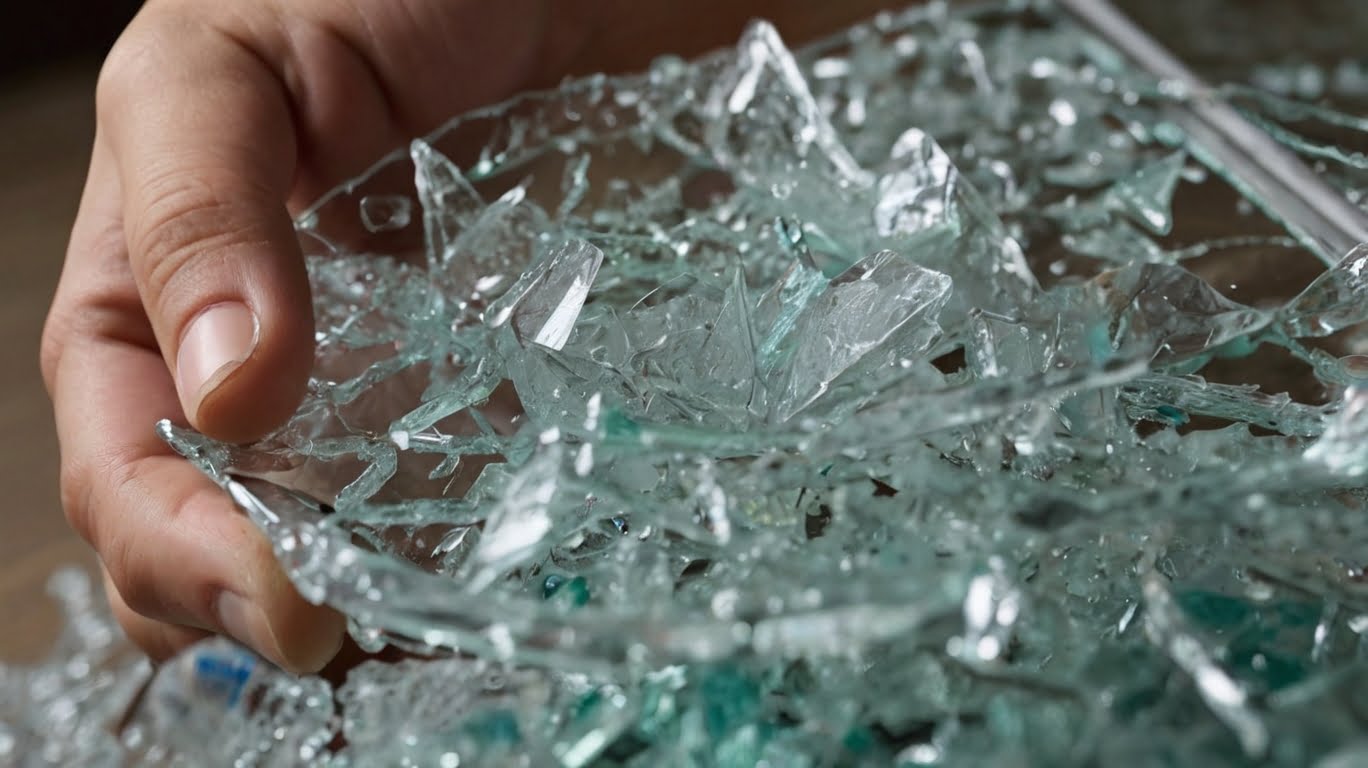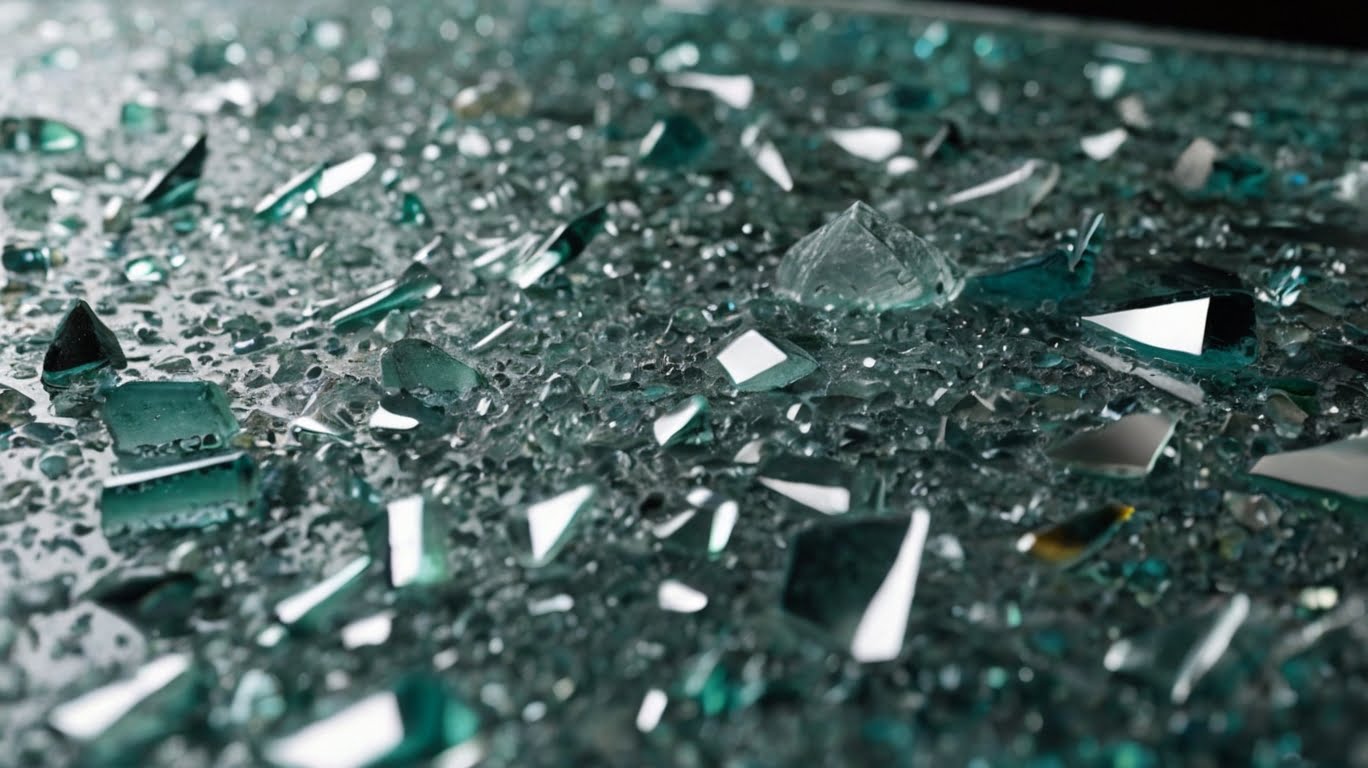It’s astonishing how even a small piece of broken glass can pose significant risks, whether it’s in a bustling laboratory or a quiet home kitchen. Cleaning up shattered glass requires not just caution but also an understanding of effective techniques to ensure complete removal. To do it properly, using unconventional methods can often yield the best results Clean Up Broken Glass.
Historically, sweeping up broken glass with a broom was the go-to method, but studies show that it often leaves behind small, dangerous shards. Statistics reveal that even little glass fragments can lead to severe cuts, which necessitates a more meticulous approach. Experts nowadays advocate for using damp paper towels to pick up tiny pieces, followed by vacuuming to ensure that no hazardous particles remain.
- Wear protective gloves and shoes to avoid injuries.
- Use a broom and dustpan to remove large pieces.
- Press duct tape over the area to pick up smaller shards.
- Vacuum the area thoroughly, but check your vacuum can handle glass.
- Dispose of broken glass in a puncture-proof container.

Potential Dangers of Broken Glass
Broken glass can be extremely hazardous, posing a risk of serious injury. A single shard can easily puncture the skin. Even minor cuts can lead to infections if not treated properly.
Sharp edges of shattered glass can slice through skin and cause deep wounds. These injuries often require medical attention, such as stitches. In severe cases, surgery might be needed to remove embedded glass fragments.
Small pieces of glass are especially dangerous. They can be hard to see but can still cause significant harm. These tiny shards can lodge in the skin or be accidentally ingested, leading to serious complications.
According to this post, leaving broken glass unattended increases these risks. Pets and small children are particularly vulnerable. Ensuring prompt and thorough cleanup is essential for safety.
Traditional Methods Clean Up Broken Glass
Cleaning up broken glass has been a common problem over time. Traditional methods can be effective but often leave tiny, dangerous shards behind. Here are common methods used historically.
Using a Broom and Dustpan
Brooms and dustpans are classic tools for glass cleanup. Sweeping up large pieces is straightforward, but small shards usually remain. These tiny fragments can pose hidden dangers.
According to the article here, even a thorough sweep might leave behind small, missed pieces. This method is easy but not always complete. Thus, double-checking for leftover shards is crucial.
An alternative is using a damp cloth after sweeping. This can help pick up remaining glass bits. Combining methods increases safety.
Using a Vacuum Cleaner
Vacuum cleaners can efficiently clean broken glass. Special attachments and settings can help capture tiny shards. However, care must be taken to avoid damaging the vacuum.
Not all vacuums can handle glass, especially larger pieces. It’s essential to check the vacuum’s compatibility first. Some people prefer handheld vacuums for better control.
Using a brush attachment is advisable. This can help dislodge small, stuck pieces. Ensuring the vacuum’s bag is cleared after use also helps avoid future problems.
Utilizing Adhesive Tools
Adhesive tools like sticky tape are also handy for picking up tiny shards. After sweeping, press the tape onto the floor to collect smaller pieces. This method is particularly useful for hard-to-reach areas.
Similar to tape, lint rollers can be effective. They cover more surface area quickly. Regularly replacing the adhesive surface ensures maximum efficiency.
According to this post, using adhesive sheets offers a quick solution. Portable and easy to use, these tools complement traditional cleanup methods. They increase overall safety by eliminating overlooked shards.
Advanced Techniques for Effective Glass Cleanup
For a thorough cleanup, experts recommend advanced techniques that go beyond basic tools. These methods ensure the complete removal of even the smallest shards. Let’s explore some effective techniques.
Start by using a flashlight to identify tiny, hidden pieces of glass. Shine the light at a low angle to make the shards easier to see. This step helps ensure that no dangerous pieces are left behind.
Applying shaving cream is another innovative method. Spread a layer of shaving cream over the area where glass is present. The cream traps the shards, making them easy to wipe away with a cloth.
Another helpful technique is using playdough or putty. Pressing these materials into the affected area helps pick up small fragments effectively. This method is especially useful for uneven surfaces or carpeted areas.
The Role of Technology in Glass Cleanup
Technology has revolutionized the way we clean up broken glass, offering safer and more efficient solutions. Modern tools and devices now make the task quicker and more thorough. Let’s delve into some of these advancements.
Robotic vacuum cleaners have become popular for picking up small glass shards. These advanced devices can navigate around rooms autonomously, ensuring no shard is left behind. They often come equipped with sensors to detect and manage debris of all sizes.
Many vacuum models now feature specialized attachments. These are designed to handle delicate and dangerous materials like glass. The attachments help focus the suction power, making it easier to collect every tiny fragment.
Advanced handheld devices have also proven to be useful. High-powered portable vacuums can quickly and efficiently clean up broken glass. These tools offer precision and are especially useful in tight spaces.
Homeowners can also benefit from smart cleaning systems. Integration with smartphones allows for remote control and monitoring. This ensures that even when you’re not home, the cleanup process can continue smoothly.
According to here is the post, leveraging technology not only enhances safety but also saves time. Investing in these advanced tools ensures you are well-prepared for unexpected glass breakage incidents. Such innovations make the overall cleaning process much simpler and more efficient.
Maintaining Safety During and After Glass Cleanup
When cleaning up broken glass, safety should be your top priority. Wearing protective gloves and shoes can prevent injuries. Ensuring that the area is well-lit can also help you spot all glass pieces.
Using tools correctly is crucial. For instance, when using a vacuum, ensure it is suitable for glass. Doing so will prevent damage to the appliance and ensure all shards are collected.
Disposal of glass shards should be done carefully. Use a thick, puncture-proof container to hold the broken glass. Label the container so others are aware of its contents.
Keeping pets and children away from the cleanup area is vital. Broken glass can be difficult to see and easy to step on. Make sure the area is entirely clear before they return.
After the initial cleanup, perform a final check. Use a flashlight to scan for overlooked pieces. This step ensures that no hidden shards pose a future risk.
According to here is the article, running a damp cloth over the area can pick up minuscule fragments. It’s a simple but effective way to make sure the space is safe. Always double-check, as missing even one piece can result in injury later.

Frequently Asked Questions
Broken glass poses various safety risks and requires careful handling for cleanup. Here are some common questions and answers to help you manage these situations effectively.
1. What tools do I need to safely clean up broken glass?
You will need protective gloves, a broom and dustpan, duct tape, and a vacuum cleaner, if it can handle glass. These items help collect both large shards and tiny particles effectively.
Using a thick, puncture-proof container for disposal is also essential to prevent injuries. Keeping pets and young children away from the cleanup area is advisable as well.
2. Can a regular vacuum cleaner pick up small glass pieces?
Not all vacuum cleaners are suitable for picking up glass fragments. Many standard vacuums lack the attachments or power necessary to capture all pieces without being damaged.
If using a vacuum, ensure it’s designed to handle debris like glass by consulting the user manual. A handheld vacuum with specialized attachments can offer better control and safety.
3. How can I tell if I’ve picked up all the glass?
A useful trick is to use a flashlight at a low angle across the floor to spot any remaining shards. The light will catch on tiny pieces that might be missed otherwise.
An additional measure is running over the area with damp paper towels or adhesive tools like sticky tape or lint rollers. These methods help collect even minuscule fragments for added safety.
4. Is it safe to dispose of broken glass in my household trash?
Puncture-proof containers should always be used when disposing of broken glass to avoid injuries during waste handling. Clearly label these containers so others know what’s inside.
Selecting appropriate disposal protocols according to your local waste management guidelines ensures everyone’s safety, including sanitation workers who handle your trash.
5. Are there professional services available for cleaning up broken glass?
Yes, various cleaning companies offer services specifically for hazardous materials like broken glass. These professionals have specialized tools and training to ensure thorough cleanup.
If you face a large spill or feel unsafe handling it yourself, hiring professionals can be a prudent choice. Most services also adhere strictly to safety regulations about hazardous waste disposal.
Conclusion
Effective glass cleanup is crucial for ensuring safety and preventing injuries. Using a mix of traditional and advanced methods helps to remove all shards, making spaces safer for everyone. Leveraging technology can add another layer of thoroughness and efficiency.
Protective measures during and after cleanup are equally important. By following best practices and using the right tools, you can handle broken glass incidents with confidence and ease. Always prioritize safety to create a hazard-free environment.

